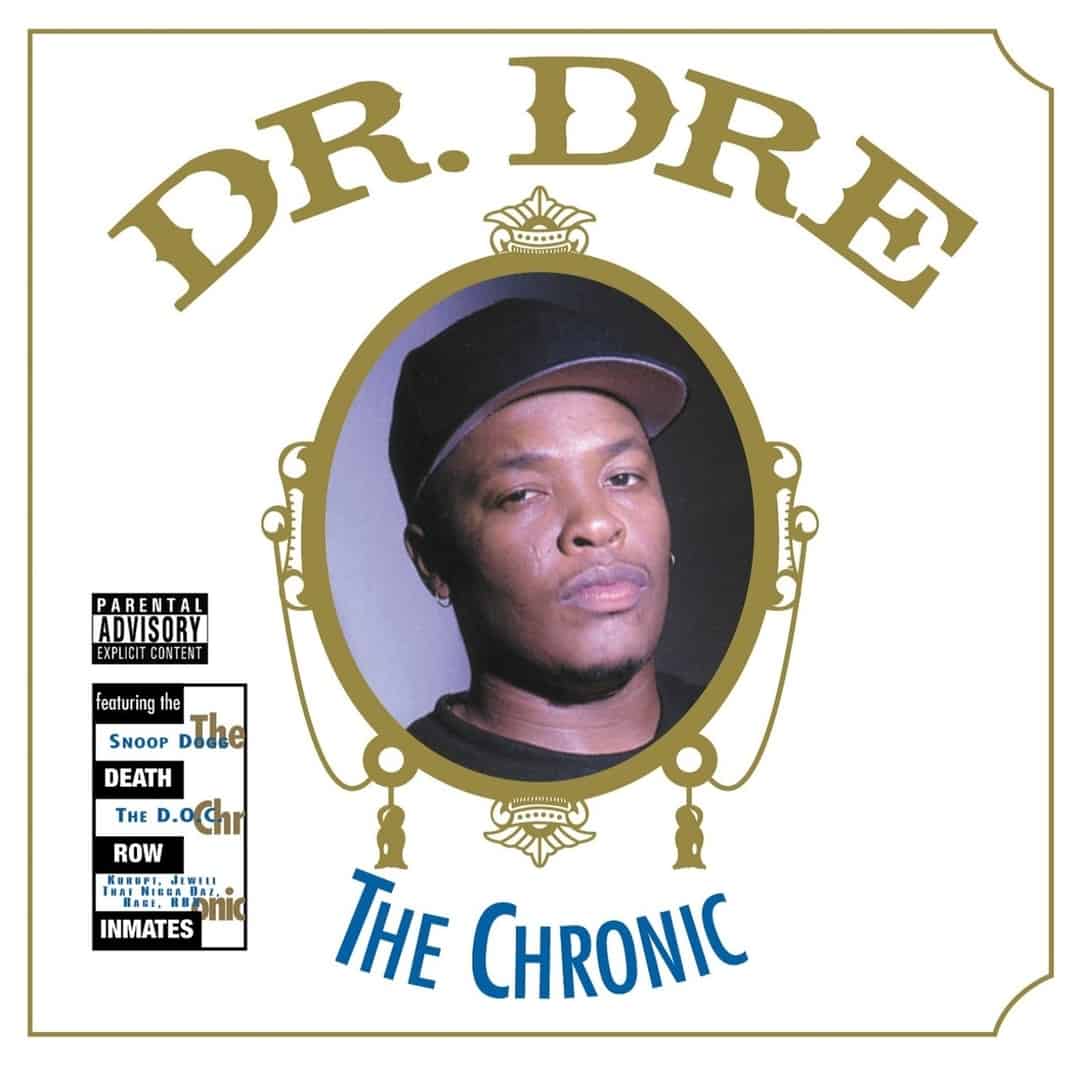Sometimes an album is released at the exact moment in time when it is at its most explosive, and perhaps most needed. It changes your mind, it touches your heart, and when you hear the opening riff of Dr. Dre’s The Chronic, it sends you immediately back to a very particular time and place. The unique penetrating nature of The Chronic into the mainstream has had a long-lasting effect on cannabis culture, and one can trace a sharp turn in public attitudes to its audience. Released against a backdrop of extreme racial tensions following the Rodney King verdict and at a time when African American youths were being arrested for the smallest drug infraction, it is easy to draw parallels to today, and also to see how far we’ve come in our relationship with marijuana. Thousands are still imprisoned in America for minor drug-related charges, but cannabis continues its journey towards legalization in the US. The Chronic was a turning point in the cultural conversation around cannabis, and presented some listeners with sounds from a world very far from their own.
While recreational marijuana use reached its peak in America in the 1970s, public support of its use began to decline shortly thereafter. Flipping through issues of High Times from the 70’s era will bring you face to face with advertisements for the BuzzBee Frisbee (with a special pipe so you could literally “puff, puff, pass”), “You’re the Dealer!” board game, and pictures of clowns selling rolling papers. The ads, as well as the existence of magazines such as High Times and Stone Age themselves, provide some insight into how vast the marketplace and its target audience had become, with such products targeting kids in particular. By 1978, the rates of adolescent marijuana use had skyrocketed, with 1 in 9 high school seniors smoking pot every day and children as young as 13 reporting that the drug was “easy to get.” This angered a growing number of parents, who saw kid-oriented paraphernalia as a “gateway” to drug use. By 1986 only 27 percent of the population supported legalization, and at the same time favor for penalties surrounding its use and possession rose. The government followed suit and President Reagan announced that possession of 100 marijuana plants would receive the same penalty as 100 grams of heroin. This was followed by the institution of mandatory sentences for drug-related crimes.
Simultaneous to marijuana’s fall from grace among the public consciousness, rap and hip-hop music emerged, having its own celebratory relationship with weed and introducing some of the most popular and lucrative music of all time – gangsta rap. In the early 90’s, Dr. Dre was escaping old shackles and hoping to redefine himself and his career. Having been freed (with much drama) from his contract with N.W.A, and struggling with his image in the midst of a media frenzy surrounding his assault of journalist Dee Barnes, Dre created his own label in partnership with Suge Knight’s Death Row Records. The label’s first album, The Chronic, was released in 1992. It dropped like a bomb, moved hip-hop’s zenith to the west coast, and introduced a sound that was like nothing anyone had heard before.
Dre’s funky production juxtaposes a high-pitched synth line with the legendary 808 drum machine, both crucial to the g-funk sound that underpins the album. The beats were meticulous blends of melody, bass, and pounding drums; they could blow out subwoofers while also worming themselves into a listener’s ears. The Chronic would also bring together names that would later define the album as a once-in-a-lifetime event such as Daz Dillinger, Warren G, D.O.C. and Kurupt. The Chronic “sold almost 6 million copies domestically and became immediately canonized in pop culture.” The album’s success could not be contained by boundaries such as race, age, or location. The Chronic was the new mode of access to cannabis culture in a society that had been actively suppressing its use and exposure to children for the past decade. It wasn’t a colourful toy in the pages of a magazine; it was a voice, one that shook the foundations of popular culture. Listening to The Chronic was like opening the door of a hotboxed car, and watching the talent simply spill out.
Above all others, the nation would turn its bloodshot, adoring eyes to what would become the album’s biggest star, Snoop Dogg. Snoop’s affinity for cannabis culture endeared him to millions, and his references to weed were rolled into nearly every track with his addictive slang and signature drawl. Visually, The Chronic’s album cover was a reference to Zig Zag rolling papers, and Snoop’s white hat with its marijuana leaf logo prominently featured in the music video for “Nothing But A G’ Thang”. “Chronic” became a permanent nickname for cannabis, and the album’s normalization of marijuana through music has helped change public opinion and “cleared the path” for recreational legalization. Prior to Dre and Snoop, groups such as Cypress Hill had embraced the cause on its landmark 1991 self-titled debut. “For a long time it was a bad word; saying ‘weed’ was like saying ‘heroin’ or something. The fun wasn’t there anymore,” Cypress Hill’s Sen Dog said in an interview with Cuepoint. “We just had to put a cool twist back on it, like Cheech & Chong did in the ’70s, and get people to relax on the subject.” Dre’s stance notably changed from his lyrics on N.W.A’s “Express Yourself”, on which he states “I don’t smoke weed or sess / Cause it’s known to give a brother brain damage / And brain damage on the mic don’t manage.” Four years later, he would be praising the cannabis plant for its creative powers and the role it played in the music he produced.
Dre and Snoop’s cultural stranglehold on pop culture and their influence on weed culture cannot be overstated. “It’s sort of in this realm of pop culture being able to have some representatives who are the ambassadors of cool,” said A.D. Carson, a professor of hip-hop at the University of Virginia. He believes The Chronic helped influence an entire generation’s perspective on weed and music. The collective normalization of cannabis culture by artists such as Dr. Dre, Snoop and Cypress Hill heavily influenced society’s changing attitudes. Despite attempts to maintain the perspective of marijuana as a societal ill, hip-hop’s rise to astronomical commercial success created a nation-wide contact high that has only grown in recent years. The Chronic is an important artifact of an emerging new musical genre, proving that art can cause massive ripples in history even when the intention was to simply create a cannabis charceuterie that brings friends together on an album. As Snoop told LA Weekly, “We had weed, the best weed, you know what I’m sayin’? That’s why we made The Chronic, because we had the chronic.” It’s as simple as that.
© Kanab Inc. – Kanab Inc. is a Toronto based cannabis retail company that honors the historical significance and uses of the cannabis plant across cultures and civilizations. Kanab has now opened its first cannabis dispensary at the intersection of Don Mills Road and York Mills Road in North York region of Toronto, Ontario (South of 401, West of 404 / Don Valley Parkway, and East of Leslie). For more info, please visit: kanab.ca









